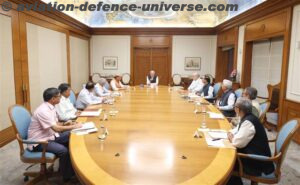- Airbus’ statement on WTO ruling
Toulouse. 17 May 2018. The WTO Appellate Body has published today the first of two rulings expected this year on subsidies in the large commercial aircraft dispute between the US and the EU. The first ruling is the Appellate Body’s final report on the EU’s compliance with previous World Trade Organisation’s (WTO) findings in the case against Airbus (DS316). The second ruling – dealing with Boeing’s case – is expected later this year.
In its report, the Appellate Body confirms the legality of the loan partnership approach between Airbus and European governments. The WTO Panel agrees further with earlier findings that the European repayable launch investment (RLI) loans for civil aerospace development projects do not constitute a prohibited subsidy and only few modifications are needed to achieve full compliance. The WTO has now dismissed in their entirety 94 percent of Boeing’s original claims.
The WTO confirmed that all aspects of the A320 and A330 programs are now in full compliance, and that only minor action remains on the A380.
A350, minor elements of the RLI remain to be addressed. Airbus is currently implementing changes to respond to these findings. This means that any potential US sanctions, now likely to be minor compared to what we expect on the case against Boeing’s subsidies, could result to be counter-productive and ill-timed.
While Airbus is preparing to make adjustments to fully implement the WTO recommendations, Boeing continues to make its own subsidy matters worse with abusive Washington State tax breaks, bad for taxpayers and global trade harmony alike.
The Washington state corporate welfare scheme has provided record breaking state-level subsidies to Boeing for the launch of the 787 aircraft (USD 5 billion). A further State incentive package for the 777X valued at an additional USD 8.7 billion in 2013 made this the largest state-level subsidy package in the history of the United States. Boeing reportedly is also actively seeking further illegal tax breaks for the planned construction of the mid-sized B797 aircraft.
Airbus CEO Tom Enders comments: “Today’s significant legal success for the European aviation industry confirms our strategy which we have followed over all those years of the dispute. Of course, today’s report is really only half the story – the other half coming out later this year will rule strongly on Boeing’s subsidies and we’ll see then where the balance lies.”
Enders continues, “The result is simple: Airbus pays back its loans, Boeing pays back nothing and continues to exploit the generosity of the U.S. taxpayer. Despite Boeing’s rhetoric, it is clear that their position today is straightforward healthy: they have half the market and a full order book, they have clearly not been damaged by Airbus repayable loans.”
Airbus General Counsel John Harrison added: “Airbus recognizes the importance of the WTO and the Appellate Body’s findings and will do what is necessary to correct any errors and this report confirms the efforts we are making. We likewise expect Boeing to take note when it comes to its compliance obligations. Boeing has in the past shown complete disregard by ignoring the recommendations and continuing with their illegal behavior.
And he further explained: “Boeing is now at more than 90 percent failed claims. This is proof of Boeing’s cynical PR motives in bringing this case about in the first place. It shatters Boeing’s claim it perpetuated for years that their WTO case undermines European industrial-government partnership.”
Airbus thanks the European Commission and the governments of France, Germany, the United Kingdom and Spain for their continuous support throughout the dispute process. “Airbus is grateful for the time and effort that has been invested in defending the interests of the aviation industry,” Airbus CEO Tom Enders stated.
Airbus calls for all parties to accept the global nature of trade and to put an end to the long-running, disruptive dispute. An amicable negotiation with no preconditions is the only viable solution, either between the EU and the U.S. or ideally a global agreement.
Commenting more broadly, Enders concludes: “The current geopolitical climate for trade is worrying, and industry players should not fuel it with unproductive disputes that undermine fair competition world-wide and impact the workers in this industry as well as our customers and operators. The consequences of such disputes extend beyond the aerospace industry and affect economic growth on a global scale.”






























































































































